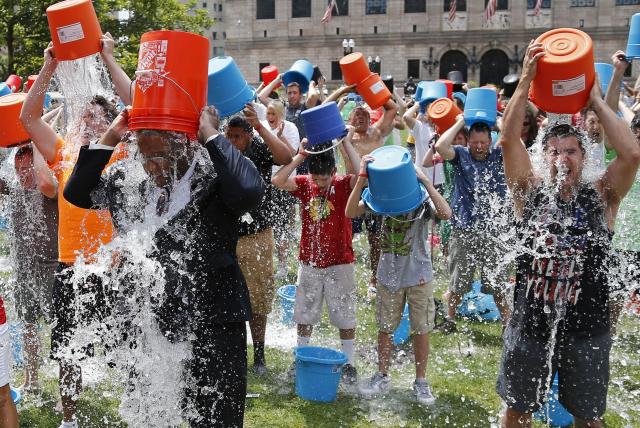The Ice Bucket Challenge – Social Media Genius or Slacktivisim?
Unless you've been locked down in solitary confinement at a Supermax prison for the last month, it's been hard to miss witnessing at least one person standing
Unless you’ve been locked down in solitary confinement at a Supermax prison for the last month, it’s been hard to miss witnessing at least one person standing in front of a camera and dumping a bucket of ice water on their head. From high profile folks like Bill Gates and Mark Zuckerberg to big Charlotte advertising agencies to kids in the neighborhood, everyone seems to have jumped under this icy bandwagon.
At first glance, it’s easy to dismiss this online campaign as “slacktivism,” a buzzword that denotes online engagement for a cause that requires very little time, effort or real-world involvement.
Also known as “clicktivism” or “hashtag activism,” viral campagins like this raise the question whether those who have dumped water over their heads have donated money or even know what ALS is. Tweeting or posting to Facebook is the easy part, but once that back patting is complete, how many people take action in a meaningful, tangible way?
Pros and Cons of Hashtag Activism
The negative portrayal of slacktivism was captured in a UNICEF campaign last year in Sweden, and there does exist, in fact, research that seems to support the premise thatthe more public a person’s activism is online, the less likely they are to act in a meaningful way.

“By publicly supporting these causes, you say, I’m a good person, diminishing the need to provide follow-up support for the cause,” said Kirk Kristofferson from the University of British Columbia’s Sauder School of Business. (Check out Kristofferson’s April 2014 paper published in the Journal of Consumer Research).
And Slate commentator Will Oremus seemed to summarize the problem with slacktivist behavior when he quipped that “a lot of the participants are probably spending more money on bagged ice than on ALS research.”
I get that, but at the same time, even if someone doesn’t donate money, slacktivism, at the very least, raises awareness around a cause.
At the end of the day, however, the efficacy of a viral fundraising campaign can be measured in cold hard cash. And to date, the ALS Association has raised more than $13 million in the last month, up nearly $2 million over the same time last year. The group also has gotten the equivalent of 260,000 new donors in that period. That’s all attributable to the ice cold water pouring atop people’s heads.
The ice bucket-challenged then challenge someone else to do it. They can go all ice watery or contribute $100 to the ALS Association to fight the horrible disease. Of course, many are doing both and donating even more money and time.
- 4.4 million tweets contained #IceBucketChallenge
- Raised 8.8 million for ALS
- Most people chose Thursday to get wet
- For every original tweet, there were 3 retweets.
At our Charlotte advertising agency, we’re constantly reminding clients that one of the most useful attributes of social media for their brand is how creates a conversation as opposed to the one-way monologue of traditional marketing communications.
And here we are, talking about it. Meanwhile, the ice bucket challenge has become an internationally trending activity with celebrities and sports stars from around the world participating. From Oprah Winfrey to Justin Timberlake, Justin Bieber, Ethel Kennedy, Peyton Manning, LeBron James and the Philadelphia Eagles, among many, many others.


